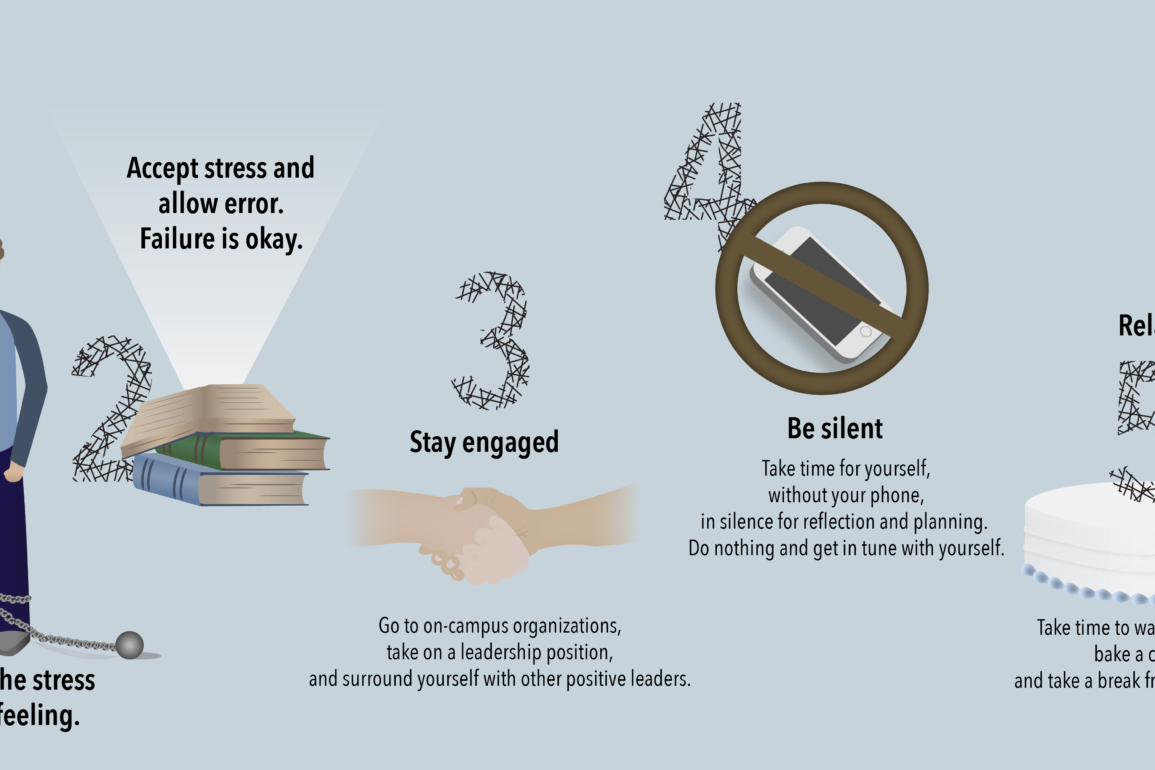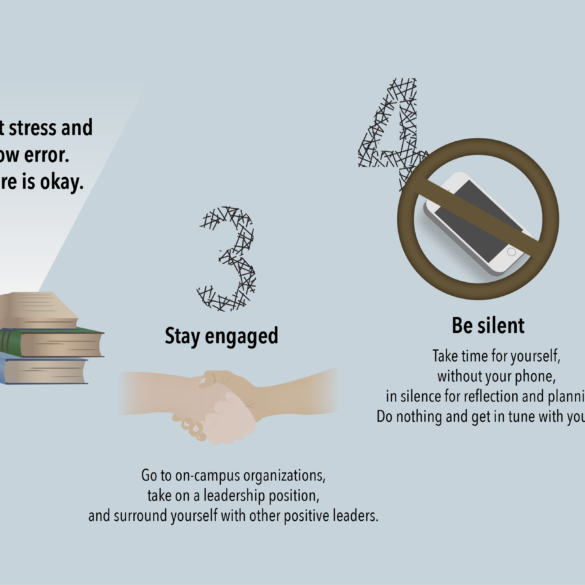Going through the motions of everyday life can often cause stress and have negative effects.
Self-care is more than just getting sleep and maintaining a healthy diet. It is making the conscious effort to change and then actively working toward matching behaviors and attitudes to change accordingly.
Jagdish Khubchandani, an associate professor of health science at Ball State University, says a problem as small as an inefficient amount of sleep can lead to or heighten academic, emotional or even financial stress. This may cause a student to search for the solution to their problem in alcohol or drug use. He says that many risk factors occur together and if you get into one, you’ll get into the second one easily. Even though his clinical and non-clinical research on mental health of college students deems depression, anxiety and relationships as the most common health issues, they also cause or are stemmed from other unhealthy habits.
Elizabeth Peeler, a health educator at Ball State, provides prevention for students through programs such as stress management, sexual assault prevention, and nutrition in order to change some of these unhealthy habits. Her goal goes beyond increasing awareness and instead strives to build change and confidence in one’s own ability to improve. It has been found that individual-level interventions for college students on subjects such as alcohol display increasing motivation and commitment to change drinking.
The first step in creating change is identifying what needs to be changed. Putting a name to what is stressing college students out allows for a more conscious course of action. Jean Marie Place, an assistant professor of health science at Ball State, talks of accepting stress and normalizing it as an act that is not only natural, but common. Her solution to battling pressure and expectations is realizing that failure is essential to the process and error is, in fact, allowed. The final course of action is to change behaviors to mirror the internal thought process.




